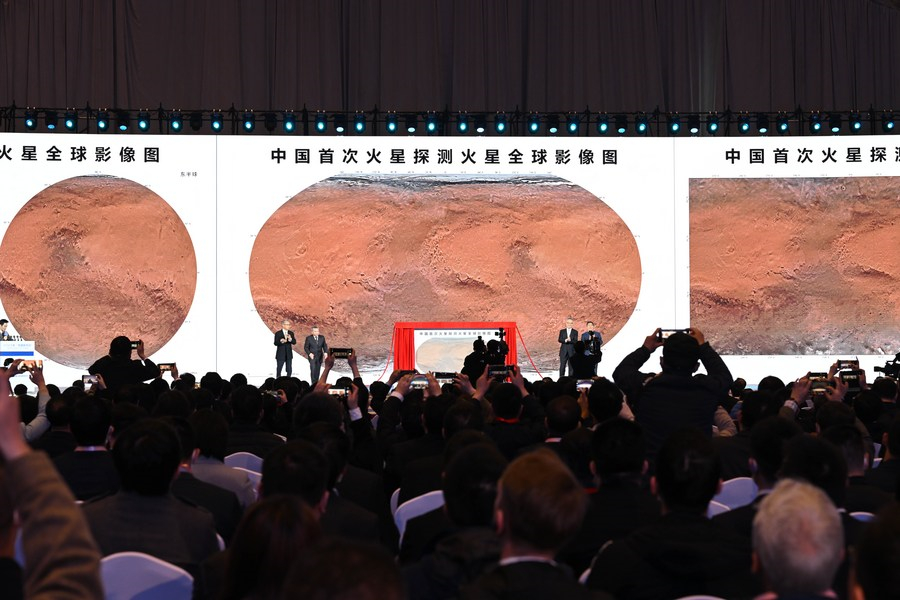China unveils blueprint for deep-space exploration development

The China National Space Administration and the Chinese Academy of Sciences jointly release a series of global color images of Mars obtained from the country's first Mars exploration mission at the launch ceremony of the Space Day of China in Hefei, east China's Anhui Province, April 24, 2023. [Xinhua/Huang Bohan]
HEFEI -- China has drawn a blueprint for future deep-space exploration development involving probing the moon, asteroids, comets, and other planets in our solar system.
China will launch the relay satellite Queqiao-2 or Magpie Bridge-2, and Chang'e-6 probe around 2024 to collect samples from the far side of the moon and bring them back to Earth, Wu Yanhua, chief designer of the major project on deep space exploration, said on Tuesday during the International Deep Space Exploration Conference held in Hefei, the capital of east China's Anhui Province.
China plans to launch the Chang'e-7 probe around 2026 to implement the resource exploration of the lunar south pole, and launch the Chang'e-8 around 2028 to build the basic model of the International Lunar Research Station, said Wu.
China plans to launch the Tianwen-2 mission around 2025 to collect samples from a near-Earth asteroid and explore a main-belt comet.
He also mentioned that China plans to launch the Tianwen-3 mission around 2030 to collect Martian samples and launch the Tianwen-4 around 2030 to explore the Jovian system and Uranus.
In the past 20 years, China successfully carried out a three-step lunar exploration program and realized sending a probe to orbit, land, and rove on Mars in one mission.
The country has obtained global lunar images in 7-meter resolution and global images of Mars in 76-meter spatial resolution. Wu said scientific discoveries from the lunar and Martian exploration missions have updated human knowledge about the moon and the red planet.
Since the country initiated its lunar exploration program in 2004, China has conducted space cooperation with 19 countries and regions in forms such as carrying scientific payloads, sharing detection data, mutual support for measurement and control, and joint scientific research, according to Wu.
China will further promote international cooperation in building the International Lunar Research Station and deep space exploration, Wu added.
























